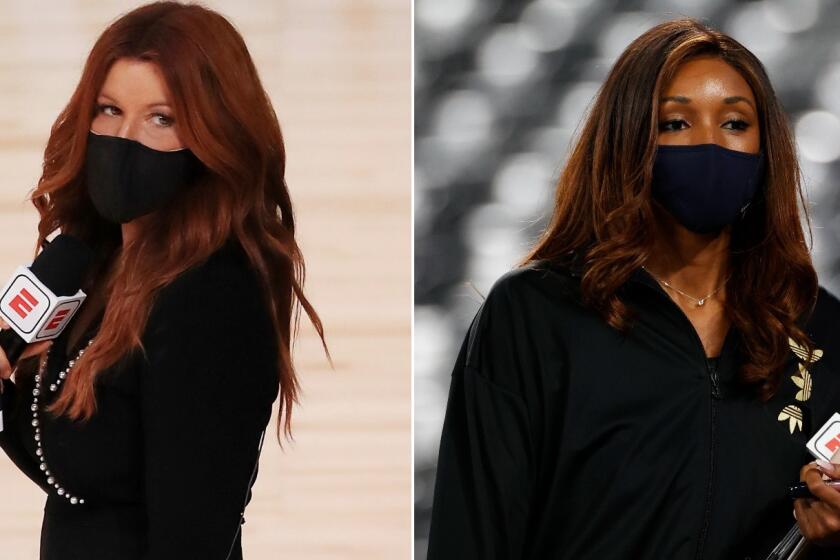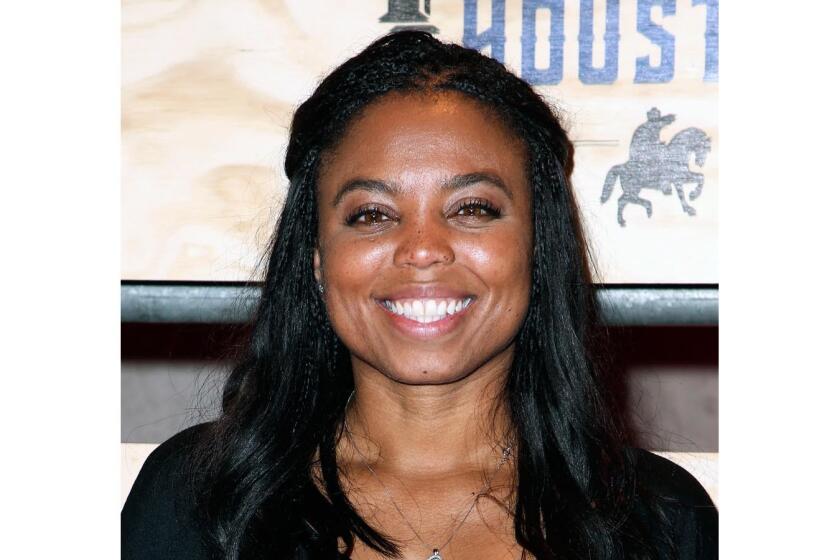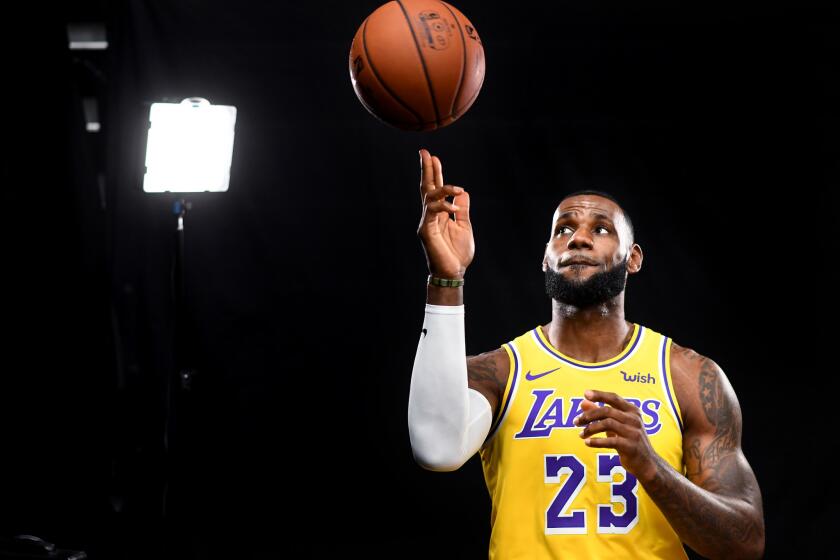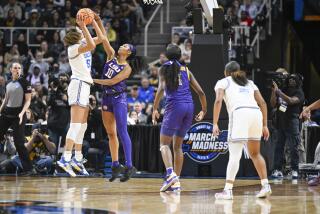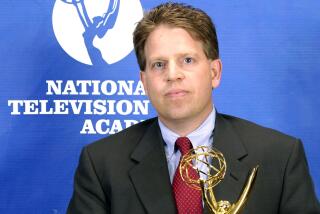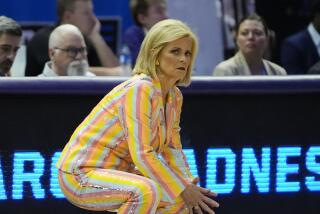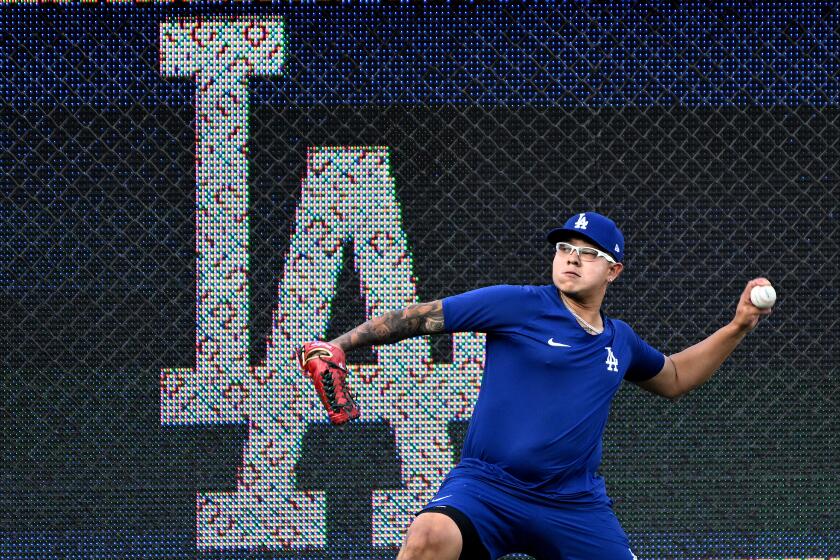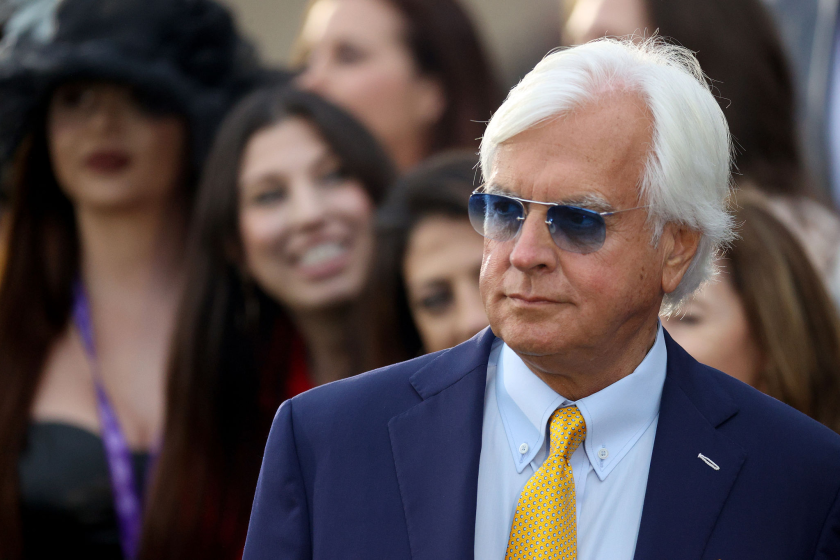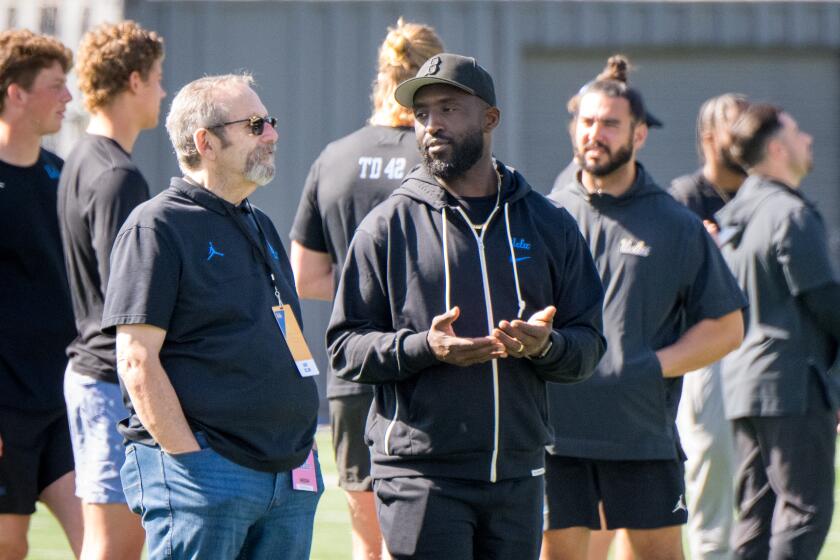Commentary: “This isn’t about Maria vs. Rachel:” ESPN must address pervasive race problems
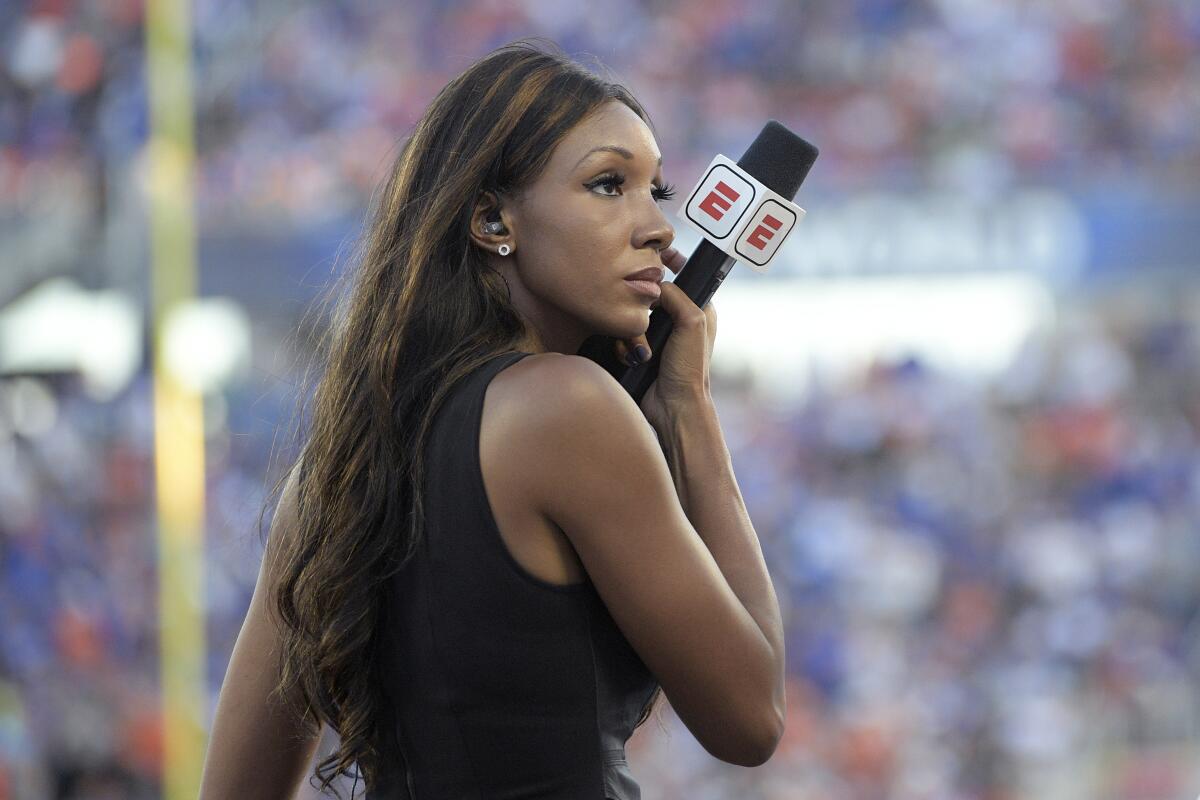
Top Black voices keep leaving ESPN for a reason.
The latest symptom of a deeply rooted problem was thrust into the national spotlight when the New York Times reported Sunday that Rachel Nichols, who is white, was caught on camera suggesting ESPN should not have selected Maria Taylor, who is Black, over her to host a prestigious NBA playoffs pregame show.
“If you need to give [Maria] more things to do because you are feeling pressure about your crappy longtime record on diversity — which, by the way, I know personally from the female side of it — like, go for it,” Nichols said during a phone conversation, according to a video recording obtained by the New York Times.
The call was captured by an ESPN camera in July 2020 while Nichols was in quarantine in her hotel room in the NBA bubble. Video of the conversation was stored on ESPN servers and soon shared by company employees who were upset by the suggestion Taylor had not earned her role.
Nichols has apologized multiple times for the conversation, most recently on Monday at the start of “The Jump,” the daily NBA show she hosts. On Tuesday, ESPN announced that Malika Andrews would replace Nichols as its sideline reporter to “keep the focus on the NBA Finals.”
Rachel Nichols can be heard on a leaked video that suggests fellow ESPN reporter Maria Taylor is advancing in the company in an attempt at diversity.
Nichols was not previously sanctioned by ESPN for her remarks. Taylor asked that she not be forced to work with Nichols on camera according to the New York Times report. The request was granted, but it was frequently revisited and Taylor was left to defend her position.
It’s a familiar pattern at the network.
“ESPN has a consistent history of undervaluing Black talent,” former ESPN anchor Jemele Hill told the Los Angeles Times in a Monday interview. “This isn’t a Rachel versus Maria story. This is a story about why they didn’t value Maria enough to allow her to take full ownership of the job.
“ESPN collects Black faces, but it seems like that when those Black faces become Black voices, it’s a problem.”
The combination of ESPN chairman Jimmy Pitaro’s early attempts to depoliticize content and conversation, economic stress accelerated by a global pandemic and a national reckoning with race created hostile working conditions for journalists of color at ESPN.
ESPN President John Skipper issued a memo Friday telling employees to avoid “inflammatory” comments on social media following the firestorm over “SportsCenter” host Jemele Hill’s Monday tweet calling President Trump a white supremacist.
Like most corporate executives at the height of Black Lives Matter protests last year, Pitaro vowed to improve workplace culture. He relaxed restrictions on political speech, especially in the wake of the murder of George Floyd and the shooting of Jacob Blake. But those adjustments were not widely embraced, and Taylor faced criticism from some colleagues for her commentary following Floyd’s death.
Pitaro and senior leadership at ESPN have fallen woefully short of living up to his workplace culture pledge.
Five sources at a range of levels at ESPN confirmed the New York Times’ report of intense stress and unhappiness among many Black employees and other journalists of color. It isn’t limited to Taylor, Hill and other on-air talent, with senior producers and support staff behind the cameras equally frustrated.
“ESPN collects Black faces, but it seems like that when those Black faces become Black voices, it’s a problem.”
— Jemele Hill
National Association of Black Journalists president Dorothy Tucker posted on Twitter Sunday that the only person sanctioned for the incident was a Black producer who told human resources she had shared the video with Taylor. The woman was suspended for two weeks without pay and given less desirable tasks. She recently left ESPN.
“I have concerns: The ESPN Black employee was punished for revealing the incident but no action was taken against the White ESPN talent for insulting the Black talent? There will be follow up post holiday,” Tucker wrote.
ESPN spokesman Josh Krulewitz told the New York Times: “A diverse group of executives thoroughly and fairly considered all the facts related to the incident and then addressed the situation appropriately.”
Many have focused on the troubling conversation between Nichols and LeBron James adviser Adam Mendelsohn, who himself has apologized for suggesting during the conversation that the Me Too and Black Lives Matters movements had driven him to exhaustion.
How ESPN and other networks have changed their approach to addressing political issues in sports under pressure from athletes.
But as Hill notes, that conversation is a symptom of a much deeper problem.
It’s not hard to do the right thing, and yet ESPN leadership has too often failed to support Black female journalists.
Taylor was described to the Los Angeles Times by current and former ESPN employees as a “perfect journalist.” In addition to her talent on camera, she is known internally for working hard, mentoring young journalists of all backgrounds and establishing a foundation to support women and journalists of color.
She deserved clear, unambiguous support in the face of a tired diversity hire smear.
The overwhelming majority of journalists of color have heard a form of this attack relayed either to their faces or behind their backs. You filled their quota. You are the diversity hire. You are only here because of your gender or race.
It can come in the form of jokes and sometimes is leveled casually, as if it isn’t a bomb that can wreck the target’s confidence or push them to take on more work in an effort to prove their worth.
Why did Nichols seek Mendelsohn’s advice? Why didn’t she feel her concerns about her own role would be evaluated fairly? Why wasn’t her language renounced clearly to staff and, at a minimum, training provided to highlight why this was unacceptable regardless of how it came to light?
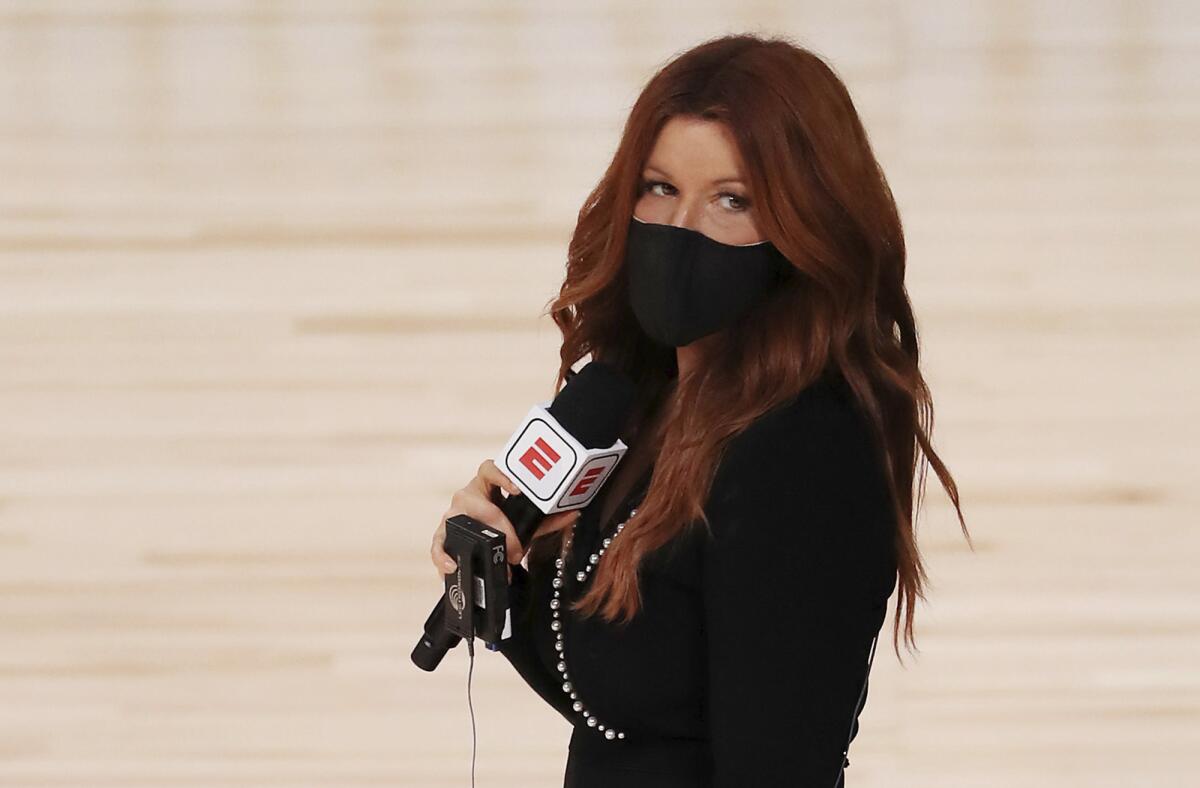
Yes, this was an accidentally taped conversation, but it was with a person who has a direct impact on how Taylor does her job. That’s a public smear, regardless of how the conversation was shared within the company.
ESPN proudly touts it has hired more women and journalists of color than any other media company, but it also has the most jobs — the most premium jobs — available. The support for its diverse staff is weak. ESPN has few female executives of color with clout needed to resolve conflict based on their clear understanding of the depth of the problems.
“NBA Countdown” producer Amina Hussein, a 17-year veteran and one of the highest-ranking female executives and journalists of color at ESPN, left in December.
“I’ve only worked with one other African-American female at ESPN and that was Julaine Edwards as part of the SEC Network,” Taylor told Forbes in December 2019. “So, having Amina involved is everything to me.”
Hussein’s departure directly impacted how ESPN’s fractured NBA team responded to the current strife.
This is an issue throughout media, which calls out inequality in other spaces but has yet to fully address it within its own ranks. This includes the Los Angeles Times, which has made strides, but which rightly acknowledges there is still considerable work to be done.
Racial inequality in media is frequently highlighted, but real progress requires an investment in cultivating diverse managers — including women of color — and giving them authority to lead. Until companies invest in these leaders, they will keep getting embarrassed.
Why does this matter?
Failure to invest in truly diverse leadership will erode ability to tell the best stories in a competitive space, speed up the loss of audience and hinder long-term revenue opportunities.
You’re just going to lose in every way possible.
Until companies invest in [cultivating diverse leaders], they will keep getting embarrassed.
How do you fix this?
It takes more than hiring journalists of color from other companies, saying diversity’s important and sponsoring journalism conferences.
Do that, but also cultivate and elevate diverse voices on your team. Listen to them, give them chances to lead and give them room to learn from failure.
ESPN never had to be in this position. It needs to listen to the incoming calls from the National Association of Black Journalists. But more important, it needs to start listening to the calls for change coming from within its own offices.
More to Read
Get our high school sports newsletter
Prep Rally is devoted to the SoCal high school sports experience, bringing you scores, stories and a behind-the-scenes look at what makes prep sports so popular.
You may occasionally receive promotional content from the Los Angeles Times.
